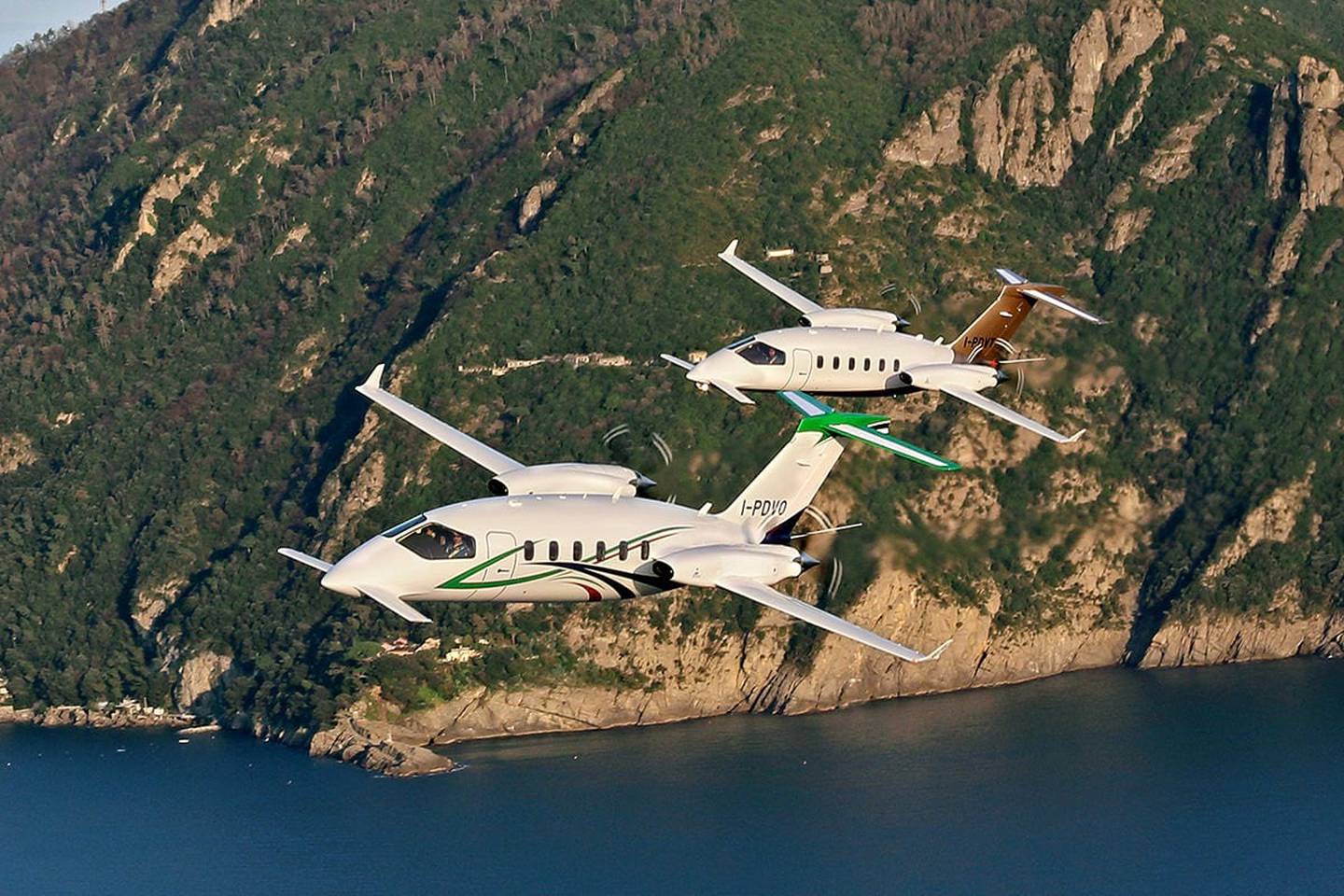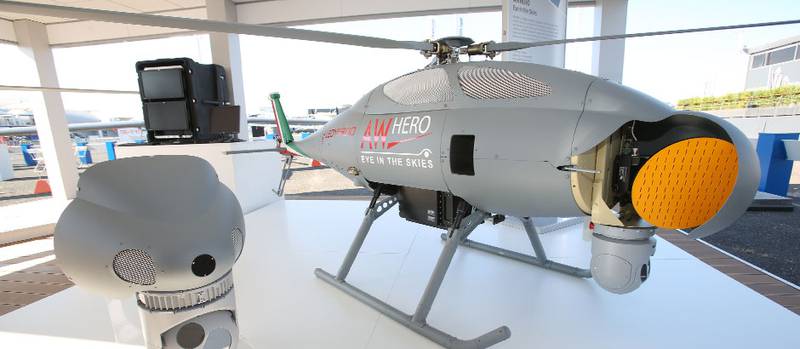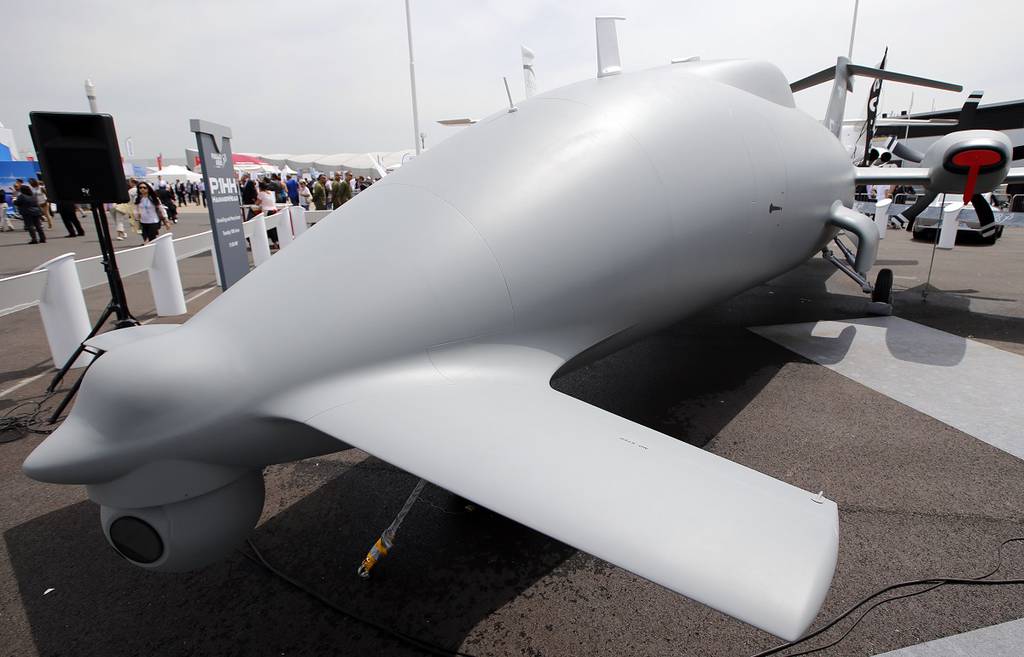ROME — Italy is edging closer to acquiring a new surveillance drone based on a business aircraft design. The UAV will offer 24-hour endurance and have a top speed of 330 knots.
Italy’s Ministry of Defence last month sent an acquisition request to Parliament’s defense commission for 20 Piaggio Aerospace P.2HH drones, costing a total of €766 million (U.S. $951 million).
The platform, dubbed the HammerHead, is an unmanned variant of the Piaggio Aerospace P180 business aircraft, which flies with two pusher propellers.
The request is the latest episode in the drawn-out development phase of the medium-altitude, long-endurance UAV, which has been punctuated by a test crash and the planned sale of Piaggio Aerospace’s civil activity to a Chinese-backed fund.
The request to Parliament describes the purchase of 10 piloting stations and 20 aircraft, which will be able to fly at 45,000 feet, carrying out intelligence, surveillance, target acquisition and reconnaissance missions.
The aircraft would be able to land at regular airports, fly in all weather conditions, and operate day and night in segregated and nonsegregated airspace.
With funding annually doled out until the completion of the program in 2032, the aircraft will be built at Piaggio Aerospace’s facility at Villanova di Albenga in Italy. The program has previously received funding thanks to Italy’s 808 law, which covers research funding for new defense technology.
The parliamentary commission did not vote on the request since it arrived too close to Italy’s March 4 election, which saw the country’s incumbent center-left government defeated, with no clear winner emerging. Talks will now be held in April to find a coalition government.
But in the meantime, Italy’s Defence Ministry is set to push on with the program since the opinion sought was nonbinding, according to the head of the commission, Francesco Saverio Garofani.
Despite its Italian origins, Piaggio Aerospace has been controlled since 2014 by Mubadala Development Company, a strategic investment and development firm in Abu Dhabi, United Arab Emirates.
In 2015, the firm said the Italian Air Force would be the launch customer for a smaller version of the P.2HH, known as the P.1HH, which appeared at the Paris Air Show that year sporting Italian Air Force colors. The company’s CEO at the time said the UAV could also serve to fill a gap before the planned European UAV known as the EuroMALE was launched.

Test flights were carried out with the support of the Italian Air Force; but before any Italian deal was announced, the UAE stepped in to sign a €316 million deal in March 2016 to buy eight of the smaller P.1HH aircraft.
Then, in May 2016, the firm’s initial prototype crashed into the Mediterranean Sea, reportedly due to problems with the integration of the flight-control system. Test flights resumed in July 2017, and a spokesman said this month that the UAE would receive its first aircraft by year’s end, with all eight delivered by the end of 2019.
Meanwhile, Italy is now eyeing the larger version of the UAV known as the P.2HH, which offers longer endurance.
“The development of a new version of the UAV, which [is] more advanced and which offers greater performance, is one of the growth objectives of our firm,” said Renato Vaghi, CEO of Piaggio Aerospace. “So we are following with interest the legislative process that envisages the provision of funding by the Italian government for its development and acquisition.”
However, Italy is yet to place an order, three years after Piaggio Aerospace first said it would be the launch customer. If Italy’s plan was to buy the HammerHead as a gap filler ahead of the introduction of the EuroMALE, that gap is now getting smaller.
RELATED

Meanwhile, Piaggio Aerospace’s Gulf owners starting planning last year to sell off parts of the firm’s civil activity, starting with its engine maintenance operation. More ambitious were plans to sell the intellectual property rights to the design of the P.180 business aircraft, which prompted the Italian government to invoke its so-called Golden Power legislation, which allows it to control the sale of strategic Italian industries.
Issued in October 2017, a government decree gave the government authority to ensure that during any sale, a firewall was created between military activity on the UAV and civil work on the P.180.
Mubadala began talks with a Luxembourg-based fund called Pac Investments, which is managed by Giuliano Felten, a former commercial director at Piaggio Aerospace.
In a recent interview with Italian media, Vaghi said the talks with Pac Investments might lead to the opening of a production line for the P.180 in China as well as marketing of the aircraft in the country.
Tom Kington is the Italy correspondent for Defense News.








